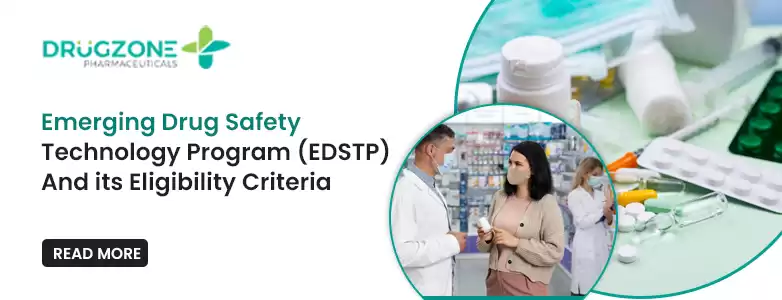
Posted On: August 30, 2024
A Comprehensive Guide to Prescription Animal Drugs
A Comprehensive Guide to Prescription Animal Drugs
Prescription animal drugs play a crucial role in keeping our pets healthy and happy. From treating infections and chronic diseases to providing pain relief, these medications ensure our furry friends live their best lives.
Given their importance, understanding the various types of prescription animal drugs and their uses can help pet owners make informed decisions about their animals' healthcare.
It is also important to note that all prescription animal drugs must undergo a rigorous approval process by regulatory bodies such as the U.S. Food and Drug Administration (FDA) before they can be prescribed by veterinarians.
In this blog , you will get a holistic overview of these essential medications, in addition to other fact-checks.
Types of Prescription Animal Drugs
| Type of Drug | Description |
| Antibiotics | Treat bacterial infections, respiratory infections, skin infections, and more. |
| Anti-inflammatories | Reduce inflammation and pain associated with arthritis, injuries, and surgery. |
| Antiparasitics | Treat and prevent internal and external parasites (e.g., worms, fleas, ticks). |
| Vaccines | Prevent infectious diseases such as rabies, distemper, and parvovirus. |
| Pain Relievers | Manage pain from injuries, surgery, and chronic conditions like arthritis. |
| Hormonal Therapy | Treat endocrine disorders such as diabetes, thyroid issues, and Cushing's disease. |
| Behavioral Medications | Manage anxiety, aggression, and other behavioral issues in pets. |
| Cardiac Medications | Treat heart conditions such as congestive heart failure and hypertension. |
| Antifungals | Treat fungal infections like ringworm and yeast infections. |
| Antivirals | Manage certain viral infections (less common than other drug types). |
| Chemotherapy Drugs | Treat various types of cancers in pets. |
| Gastrointestinal Drugs | Manage digestive issues such as vomiting, diarrhea, and acid reflux. |
Regulation of Prescription Animal Drugs: A Quick Checklist
Ensuring the safety, effectiveness, and proper use of prescription animal drugs involves several essential steps.
FDA Approval
The U.S. Food and Drug Administration (FDA) must check and approve all prescription animal drugs before they can be sold or used. They do this to make sure the drugs are safe, work well, and are made correctly.
The drugs go through a lot of tests and trials in labs and on animals. If a drug doesn't get FDA approval, it can't be legally sold in the U.S.
Prescription Requirement
You can only get prescription animal drugs with a prescription from a licensed vet. This ensures that animals get the right medication and the right dose for their health issues.
Vets need to know enough about the animal's condition before they can write a prescription. They do this to make sure the treatment will be safe and effective.
Licensing of Wholesale Pharmacies
Pharmacies that supply prescription animal drugs in bulk need special licenses from state authorities.
Sometimes, they also need to register with the Drug Enforcement Administration (DEA) if they handle certain controlled drugs. This licensing makes sure that pharmacies follow the rules and operate safely.
Record Keeping Requirements
Wholesale pharmacies have to keep detailed records of all their drug transactions, including sales, prescriptions, and inventory.
These records help track the movement of drugs and ensure everything is legal and safe. The records must be available for inspection by government agencies.
Proper Drug Storage
Drugs must be stored in a way that keeps them safe and effective. Wholesale pharmacies need to keep the drugs at the right temperature and humidity. Bad storage can ruin the drugs, making them less effective or even harmful.
Prescription Drug Labeling
Labels on prescription animal drugs need to be clear and accurate. They should include how to use the drug, the dose, possible side effects, and any warnings.
The vet's specific instructions should also be on the label to make sure the drugs are used correctly and safely. Incorrect labeling can lead to serious problems and regulatory action.
Adverse Event Reporting
If there are any bad reactions or side effects after using a prescription animal drug, these need to be reported to the FDA quickly.
This helps keep track of drug safety and can lead to extra safety steps if needed. Wholesale pharmacies must report these issues to ensure the ongoing safety of the drugs.
These rules help keep prescription animal drugs safe and effective.
Storage and Handling of Animal Prescription Drugs
Properly storing and handling animal prescription drugs is crucial to ensure they work effectively and are safe to use. Here are five important areas to focus on -
1. Temperature Control
Most animal medications need to be stored at specific temperatures to stay effective. Generally, they should be kept between 68°F and 77°F (20°C and 25°C). Some might need refrigeration.
Always check the label or package insert for storage instructions and use a thermometer to monitor storage areas.
2. Light Protection
Exposure to light can make some drugs less effective! Hence, store medications in their original, opaque containers and keep them out of direct sunlight.
3. Humidity Management
Humidity can degrade medications, especially tablets and powders. So, keep drugs in dry areas. Use desiccants or humidity-control devices if needed.
4. Expiration Dates
Using expired drugs can be less effective and may even be harmful.
That's why, you must regularly check expiration dates and dispose of any expired medications properly. Always adhere to FDA and USDA guidelines on medication use and disposal.
5. Safe Disposal
Improper disposal can contaminate the environment and pose risks of accidental ingestion.
Don’t flush medications down the toilet or throw them in the trash (unless instructed). Use drug take-back programs or government-approved disposal sites. And most importantly, follow FDA guidelines for safe medication disposal.
6. Government Guidelines
Regulations: The FDA (Food and Drug Administration) and USDA (United States Department of Agriculture) provide guidelines on storing, handling, and disposing of animal medications. Always refer to these for best practices.
Why Drugzone is the Ideal Choice for Animal Health Pharmaceutical Needs
The appropriate use of prescription drugs can significantly improve the health and quality of life of pets. So always partner with a trusted pharmacy wholesaler like Drugzone.
Drugzone offers a comprehensive selection of drugs such as antibiotics, antifungals, anti-inflammatory treatments, vaccinations, and more, sourced from trusted manufacturers.
Our medications are designed to meet the unique needs of various species, from small pets to large livestock, ensuring your patients receive optimal care for routine treatments, emergencies, and specialized needs.
In addition to our wide product range, Drugzone prioritizes quality and safety, complying with stringent industry standards to ensure our medications are effective and reliable. We understand the importance of affordable, high-quality medications for veterinarians and strive to provide competitive pricing.
We are committed to the health and well-being of your animal patients.
Frequently Asked Questions (FAQs)
Q. Why do animals need prescription drugs?
Just like humans, animals can suffer from various health issues that require medication for treatment. Prescription drugs help to treat infections, manage chronic conditions, and ensure overall well-being.
Q. How should I store my pet’s prescription medications?
Most pet medications should be stored in a cool, dry place away from direct sunlight. Some may require refrigeration. Always check the label for specific storage instructions.
Q. Can I give my pet expired medication?
No, you should never give your pet expired medication as it may be less effective or unsafe. Regularly check expiration dates and dispose of expired drugs according to FDA guidelines.
Q. How do I properly dispose of unused or expired animal medications?
Use drug take-back programs or government-approved disposal sites. Do not flush medications down the toilet or throw them in the trash unless specifically instructed.
Q. Are there government guidelines I should follow for handling and storing pet medications?
Yes, the FDA (Food and Drug Administration) and USDA (United States Department of Agriculture) provide guidelines to ensure safe handling, storage, and disposal of animal medications. Always refer to these guidelines for best practices.
Tags
Latest Posts
-

A Beginner's Guide to GS1 Standards for Pharmaceutical Companies
-

What are Important Accomplishments of the NDRP Modernization
-

New Drugs Regulatory Program Modernization: Overview and Impact
-

What is the Emerging Drug Safety Technology Program (EDSTP) And its Eligibility Criteria?
-

DSCSA Compliance For Dispensers/Pharmacies
